What is a DOT Placard?
Placards are pictograms that indicate the Hazard Class or
Division of the hazardous material in a package, covering both the primary
hazard and any subsidiary hazards.
The regulations include specific pictograms and
colors for each Placard. The full text of the requirements can be found
in 49
CFR Part 172 Subpart F.
How is a DOT Placard Used?
A placard is generally applied to bulk packages,
such as a rail car or freight container. Labels are utilized for non-bulk
packages, such as compressed gas cylinders and fiberboard boxes.
When applying a DOT placard, it is important that it must
be visible and is not covered up by any other placard or signs that get applied
to the container. It is also important that any designs on the container cannot
be confused with the DOT placard. Therefore, it is best that hazardous
materials are shipped in plain containers with minimal designs present.
If multiple DOT placards are needed, the labels must be
placed next to each other, not overlapping, on the same side of the package.
Depending on the container being labeled, it is often required that placards
are placed on multiple sides of the container to ensure they can be easily
viewed no matter which side is being observed.
Meanings of the DOT Placards
Most of the DOT Placards concern the Hazard Classes and
Divisions.
 |
| This is a "Dangerous" Placard, used in specific circumstances when there are two or more non-bulk packages of different hazard categories within a larger bulk container. |
 |
| This is a 1.1A Explosive Placard. There are many other variants of the Class 1 Explosives, from 1.1A to 1.6 for the different divisions. |
 |
| This is a Class 2 Flammable Gas Placard. |
 |
| This is a Class 2 Inhalation Hazard Placard, also known as a poisonous gas placard. |
 |
| This is a Class 2 Non-Flammable Gas Placard. |
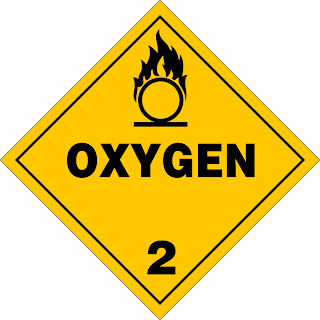 |
| This is a Class 2 Oxygen Placard, used for transporting large quantities of oxygen gas. |
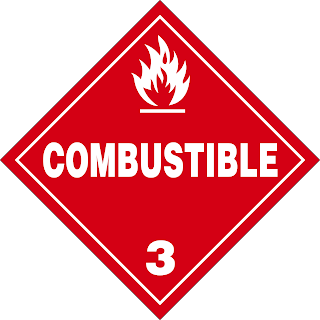 |
| This is a Class 3 Combustible Liquid Placard. |
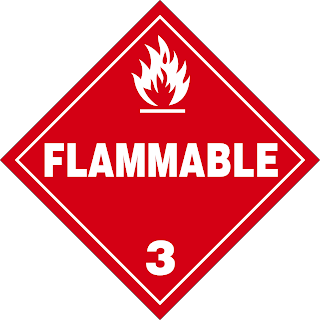 |
| This is a Class 3 Flammable Liquid Placard. |
 |
| This is a Class 3 Fuel Oil Placard. |
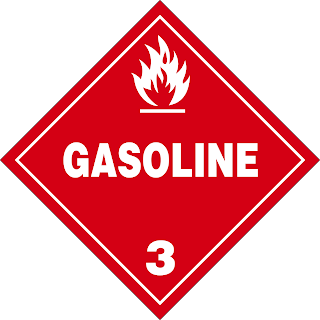 |
| This is a Class 2 Gasoline Placard. |
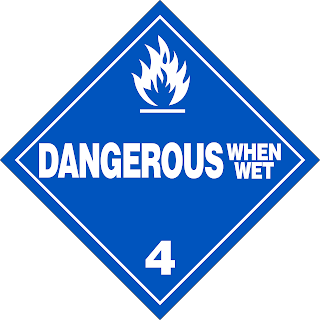 |
| This is a Class 4 Dangerous When Wet Placard. |
 |
| This is a Class 4 Flammable Solid Placard. |
 |
| This is a Class 4 Spontaneously Combustible Placard. |
 |
| This is a Class 5, Division 1 Oxidizer Placard. |
 |
| This is a Class 5, Division 2 Organic Peroxide Placard. |
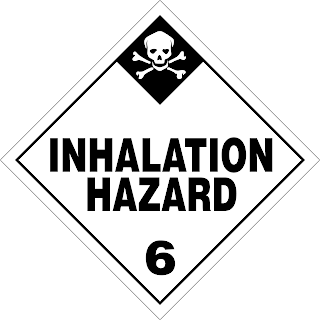 |
| This is a Class 6 Inhalation Hazard Placard. |
 |
| This is a Class 6 Poison Placard. |
 |
| This is a Class 6 Toxic Placard. |
 |
| This is a Class 7 Radioactive Placard. |
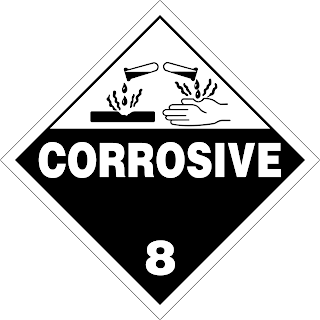 |
| This is a Class 8 Corrosive Placard. |
 |
| This is a Class 9 Placard. |
Further Reading
Learn more about Hazmat Shipping for Small Businesses.























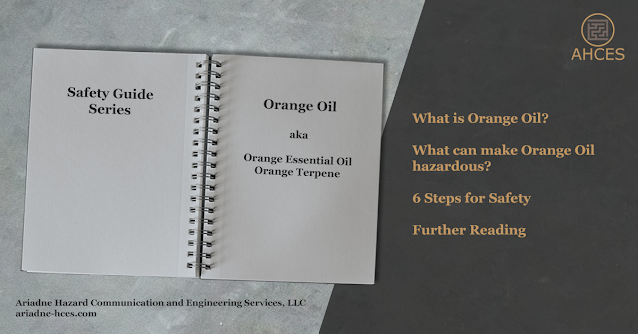


Comments
Post a Comment